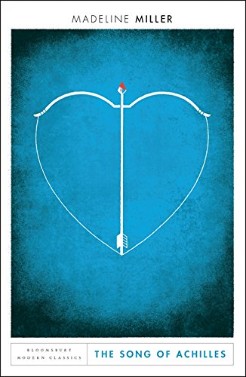My father was a king and the son of kings. He was a short man, as must of us were, and built like a bull, all shoulders. He married my mother when she was fourteen and sworn by the priestess to be fruitful. It was a good match: she was an only child, and her father's fortune would go to her husband.
He did not find out until the wedding that she was simple. Her father had been scrupulous about keeping her veiled until the ceremony, and my father had humored him. If she was ugly, there were always slave girls and serving boys. When at last they pulled off the veil, they saw my mother smiled. That is how they knew she was quite stupid. Brides did not smile.
When I was delivered, a boy, he plucked me from her arms and handed me to a nurse. In pity, the midwife gave my mother a pillow to hold instead of me. My mother hugged it. She did not seem to notice a change had been made.
Quickly I became a disappointment: small, slight. I was not fast. I was not strong. I could not sing. The best that could be said of me was that I was not sickly. The colds and cramps that seized my peers left me untouched. This only made my father suspicious. Was I a challenging human? He scowled at me, watching. My hand shook, feeling his gaze. And there was my mother, dribbling wine on herself.
I am five when it is my father's turn to host the games. Men gather from as far as Thessaly and Sparta and our storehouses grow wich with their gold. A hundred servants work for twenty days beating out the racing track and clearing it of stones. My father is determined to have the finest games of his generation.
I remember the runners best, nut-brown bodies slicked with oil, stretching on the track beneath the sun. They mix together, broad-shouldered husbands, beardless youths and boys, their calves all thickly carved with muscle. The bull has been killed, sweating the last of its blood into dust and dark bronze bowls. It went quietly to its death, a good omen for the games to come.
The runners are gathered before the dais where my father and I sit, surrounded by prizes we will give to the winners. There are golden mixing bowls for wine, beaten bronze tripods, ash-wood spears tipped with precious iron. But the real prize is in my hands: a wreath of dusty-green-leaves, freshly clipped, rubbed to a shine by my thumb. My father has given it to me grudgingly. He assures himself all I have to do is hold it.
The youngest boys are running first, and they wait, shuffling their feet in the sand for the nod from the priest. They're in their first flush of growth, bones sharp and spindly, poking against taut skin. My eye catches on a light head among dozens of dark, tousled crowns. I lean forward to see. Hair lit like honey in the sun, and within it, glints of gold—the circlet of a prince.
